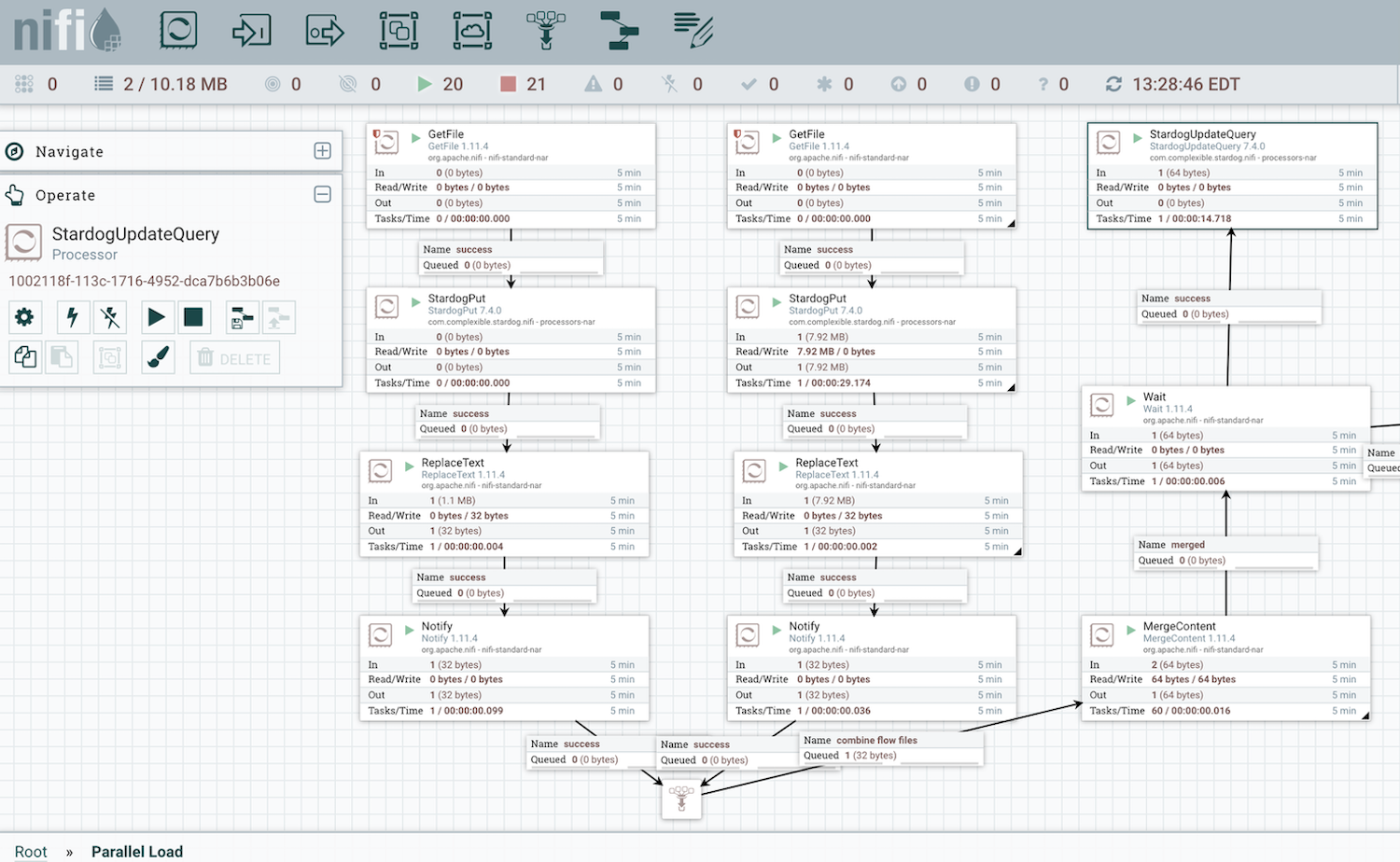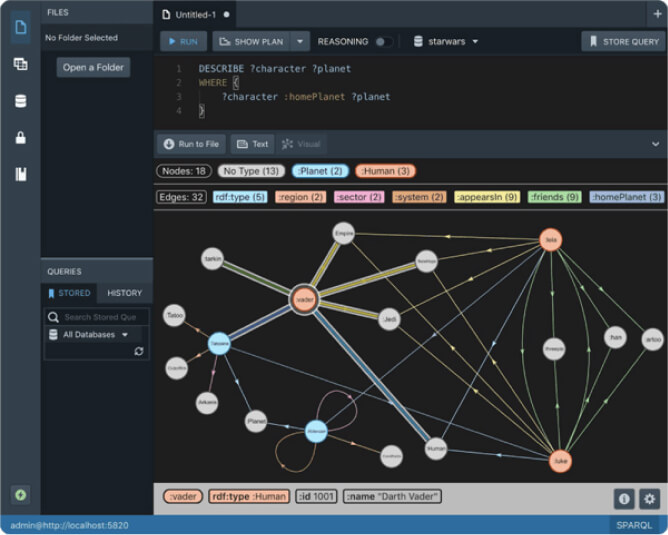5 Tips for Recruiting Startup Engineers

At Stardog I’m very lucky to work every day with the best engineers anyone could hope for. Startups are hard but having the right teammates makes all the difference when you are building an innovative product in a competitive market. Putting together a team that will tip the scale to your side is not easy.
We have made some mistakes along the way with respect to recruiting. But as in any other aspect of running and growing a business, you need to learn from your mistakes and get better at it. Here I’d like to share some of these lessons we learned and how we approach recruiting.
1. Take advantage of your size
When you’re hiring world-class engineers, the main competition is not likely the other startups in your market. The competition is the giant companies with unlimited resources that can be seen as a safer choice. But you can turn this situation into your advantage.
One of our advantages is that we built engineering completely remote from day one. While large companies showcase fancy campuses, we offered the flexibility of working from home and did not limit ourselves to a geographic location. Now that the whole world has switched to remote working, we’re among the small group that really knows how to make it work and pandemic transition for Stardog Engineering was a no-op.
There are other advantages to being small. We attract high-quality talent by showing candidates the difference they make here. Unlike at a large company, where it’s harder to see your impact, at a small startup you can see your results quickly and help shape not just the future of the product but also the company and its culture. Culture and values matter a lot because nobody wants to work in an environment where they are unhappy or uncomfortable. So let’s talk about values.
2. Highlight your values
During Google’s meteoric rise in early 2000s, its motto, “don’t be evil,” was a visible reminder of its differences. It was undoubtedly an attractive premise for engineers at the time. It is fair to say that this is not an advantage that Google has anymore.
There’s no such thing as being too skeptical, but you can be too cynical. Don’t be fooled to think that company values are a gimmick to make a company look good to customers, investors or employees. These values should really reflect your company culture and reinforce how employees operate everyday.
A startup grows organically and you might not have written the values down explicitly. It was only last year that we committed to Stardog values explicitly to emphasize the common themes that existed before then. These values emphasize not only that we want good engineering skills but the kind of people we believe we must hire in order to be successful.
For example, at Stardog, we are using Knowledge Graph technology to help the largest companies in the world manage their data. Since Knowledge Graphs are still relatively new technology, there is a lot of creativity and responsiveness required to build our platform. Accordingly, we reflected that in our values:
- Do the hard things
- Solve problems creatively
- Listen earnestly
- Be as direct as possible
- Practice charity
Our customer stories showcase how the first two values are put into use in problems ranging from going to Mars to fighting different kinds of diseases or from analyzing financial news to improving commercial real estate. The rest of the value are reflected in our daily work which brings me to my next point.
3. Use the network effect
You may not have a large HR department or dedicated recruiting team to help you find the right talent. And when you are building a cutting edge, highly sophisticated technical product it will be hard for outsiders to even understand which technical skills are relevant.
Early on you will have to rely on the network of the original hires to find good candidates. Your employees will be motivated to bring over their friends or ex-coworkers. This is where company values not as written down but as observed by your team members everyday will have an effect. And of course referral bonuses don’t hurt either! 😀
We were extremely lucky with some of our early hires, who then brought in other amazing teammates. Your first hire might not always be a perfect hit, but once when you find those people you should use their connections and judgement to grow the team.
4. Implement a structured interview process
One clear advantage of being a startup is being agile and not having too much red tape for anything. But it is very crucial to have a clearly defined interview process or it will be impossible to equitably evaluate the candidates you interview or compare different candidates with each other. Everybody involved in the interview process should be aware of what they are expected to do. Otherwise you are wasting everyone’s time.
Evaluating the programming skills of an engineering candidate is one of the hardest parts of the interview process. It is universally acknowledged that asking interviewees to write code during an interview is a really bad idea. At Stardog, we have developed several different alternatives that we use based on the open position.
One possibility is to give the candidate a programming exercise that the candidates can implement on their own time, using whatever resource that see fit, in a way that’s similar to how they would do their job.
Another possibility is we will give the candidate code we have written, ask the candidate to study the code, and then we chat about the code during the interview.
Third, sometimes the candidate will have enough open-source code available publicly that we will study those code examples ourselves.
The interview process that has worked well for us looks like this:
- Initial screening call
- Programming exercise done by the candidate asynchronously; or one of the alternatives mentioned above
- Multiple technical interviews with pairs of engineers
- A Topgrading interview
Topgrading is a generic interviewing methodology with many steps but what we have adopted for our needs specifically is the topgrading interview step. This interview is not about technical skills, but it is to evaluate the culture fit between the candidate and Stardog. This is where we can see if our company values align with the candidate’s own values and personality.
5. Hiring for values is always smart
We don’t talk about “fit”; instead we talk about background, skills, and values. What has the candidate done before that increases our confidence they can be successful? What examples from their life give us confidence that they care about what we care about? We mostly care about running an equitable process to find people with the right background or skills or demeanor to accomplish an important job that we need to accomplish, while also being a faithful and true proponent of Stardog’s values. We care about this because it matters. Life is too short to work with or for or around people who don’t share your values.
Values and background matter, but so too do expectations. There are many great engineers and many great tech companies out there but not every pairing of these will work. An engineer who is used to working at a large company, where they can delegate many tasks to dedicated teams, might not be happy in a startup environment where you might need to do a little bit of everything. For example, you might not always find a dedicated Q&A team as part of a small startup engineering team so some of that responsibility will be on the engineer developing the code. It is important to consider these kind of factors, too.
A virtue of a structured interview process is to prevent rushing to judgement. Sometimes you will encounter a candidate that has a great resume with maybe an Ivy League degree or experience in really good companies and with offers already in hand from other companies. Or you might be under pressure to deliver features in the near term and grow the team to reach those goals. In these kinds of situation you will be inclined to skip the process and perhaps ignore warning signs about the candidate. I can guarantee you that you will regret that decision. Hiring the person that is not the right fit will end up costing you more money in the end than not hiring anyone.
Sticking to the process and evaluating every aspect of the candidate while letting them evaluate your company will make it clear if the hire will lead to a long-term, bilateral equilibrium for growth and good outcomes. For us that means (1) a great engineer, relative to a set of tasks, a role, and some expectations, who (2) is also a great coworker and person, where for us “great” in both cases is someone who’s demonstrably committed to Stardog’s values.
Summary
Recruiting engineers for tech startups is as hard if not harder than developing a differentiated, high-quality product. It requires your time and attention. This should be a constantly evolving process as your startup grows. We are learning new lessons every day and trying to improve our recruiting process as a result. We are always on the lookout for engineers who will help us grow both as engineers and as people. Check out our open positions and spread the word.
Keep Reading:

Introducing Plan Endpoint
When it comes to languages for querying databases, they tend to look more human-readable than a typical programming language. SPARQL, as well as SQL, employs declarative approach, allowing to describe what data needs to be retrieved without burdening the user with minutiae of how to do it. Besides being easier on the eyes, this leaves a DBMS free to choose the way it executes queries. And as is typical for database management systems, Stardog has its own internal representation for SPARQL queries: the query plan.

Stardog Data Flow Automation with NiFi
We are happy to announce a new feature that enhances your ability to load data into Stardog’s graph database with the release of Nifi support in v7.4.
Try Stardog Free
Stardog is available for free for your academic and research projects! Get started today.
Download now